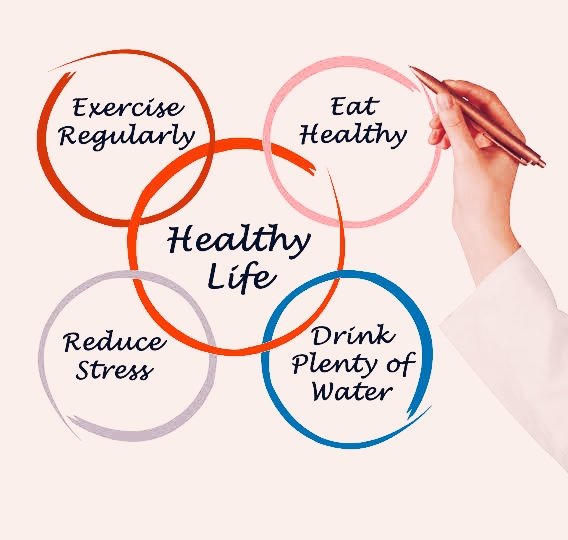Finding Peace: Effective Stress-Relief Techniques for a Balanced Life
August 22, 2023 | by healthyfitlifezone

Effective Stress-Relief Techniques
In our modern, rapidly-moving society, stress has emerged as a frequent companion for countless individuals. While a certain level of stress is natural, chronic stress can take a toll on both our physical and mental well-being. Fortunately, there are various stress-relief techniques that can help us manage and alleviate the pressures of daily life. In this article, we’ll explore some effective strategies to combat stress and achieve a more balanced and peaceful existence.
Mindfulness Meditation
Mindfulness meditation is a powerful tool for managing stress. It involves being fully present in the moment, observing your thoughts without judgment. Regular practice can help you become more aware of your stress triggers and teach you how to respond to them in a calmer manner. By focusing on your breath and observing sensations, you can create a mental space that promotes relaxation and reduces stress.
Deep Breathing Exercises
Deep breathing exercises are simple yet remarkably effective stress-relief techniques. Slow, deep breaths activate the body’s relaxation response, reducing the production of stress hormones. Practice techniques like diaphragmatic breathing or the 4-7-8 technique: inhale for a count of 4, hold for 7, and exhale for 8. These exercises can be done anytime, anywhere, making them a convenient way to manage stress on the go.
Regular Physical Activity
Engaging in regular physical activity offers more than just physical benefits; it’s a holistic tonic for your body and mind. While the physical advantages are widely acknowledged, the positive impact on mental well-being is equally remarkable. This dual effect makes regular exercise a true powerhouse in the realm of self-care.
Journaling and Expressive Writing
Putting your thoughts on paper can be a cathartic experience. Journaling or expressive writing allows you to externalize your emotions and gain insights into your stress triggers. Write about your feelings, worries, and hopes without worrying about grammar or structure. This practice can provide a sense of release and clarity, helping you navigate your stressors more effectively.
Nature and Outdoor Activities
Spending time in nature and engaging in outdoor activities can have a calming effect on the mind. Research has shown that exposure to natural environments can reduce stress levels and promote feelings of relaxation. Take a leisurely walk in the park, have a picnic, or simply sit by a body of water to unwind and recharge.
Progressive Muscle Relaxation
Progressive muscle relaxation is a deeply effective technique that facilitates the recognition and release of physical tension instigated by stress. It follows a systematic approach, beginning from the toes and gradually ascending to the head, targeting distinct muscle groups along the way. The fundamental principle involves briefly tensing each muscle group for a few seconds, enhancing awareness of tension, and then consciously allowing the release of that tension. This process not only creates a heightened connection between the mind and body but also empowers individuals to pinpoint areas of stress-induced tightness. As the tension dissipates, a wave of physical and mental relaxation ensues, leaving a palpable sense of calm in its wake. This practice serves as a powerful tool in cultivating a state of tranquility amidst the demands of daily life, offering a tangible way to alleviate stress’s grip on both the body and mind.
Engaging Hobbies and Creativity
Engaging in hobbies and creative activities you enjoy can serve as a welcome distraction from stressors. Whether it’s painting, playing a musical instrument, cooking, or crafting, immersing yourself in creative endeavors can promote a state of flow and mindfulness, reducing stress levels.
Conclusion
Incorporating these stress-relief techniques into your daily routine can have a transformative effect on your overall well-being. Remember that everyone’s journey to stress management is unique, so it’s important to experiment with different strategies to find what works best for you. By prioritizing self-care, mindfulness, and positive habits, you can reduce stress’s impact and create a more balanced and peaceful life.
RELATED POSTS
View all

